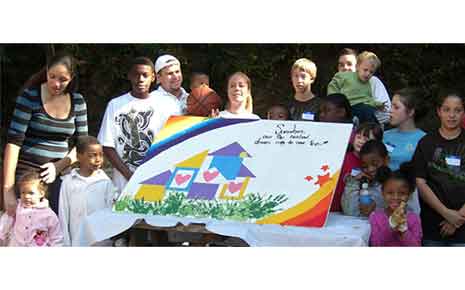Every year chamber professionals from Missouri, Arkansas, Kansas, and Oklahoma gather together at Big Cedar Lodge to learn from one another, and this year the main goal was to 'Get Real.' Session topics focused on 'Real Chambers, Real Challenges, Real Solutions,' and as always, I enjoyed my time attending and exhibiting at the MAKO conference!
One of the very real demands on chamber professionals is to ensure they have the funding needed to support their organization's efforts, and throughout the conference, several people spoke with me in-depth about their chamber's funding needs. I made note of the questions I received most frequently throughout the conference, and in case we didn't get a chance to speak together then, I'd like to share the answers to those questions with you here.
Question #1: Funding Goals
How big of a funding goal do we need to have in order to justify doing a major capital campaign?
When we talk about funding goals, we are usually talking about multi-year figures with five-years of funding being the most common scenario. So a $1 million campaign typically means $200,000 per year over a five-year program/pledge period. Anything at or near that level certainly justifies a major capital campaign, even one where the campaign management is fully outsourced to a firm like Convergent. However, we've also been involved in scaled-down engagements that make much lower funding targets cost-effective. We recently worked on a funding effort with a goal of only $250,000, for example. The key question is: do you need to raise a significant amount of money for projects, programs, or initiatives that are above and beyond the member services you provide in exchange for dues? If so, a capital campaign may be in order. Economic development initiatives are the most common example of these types of campaign and we've worked on hundreds all over the country.
Question #2: Other Organizations
What if there is another organization in charge of economic development for our community? Can we still do a capital campaign?
It's true that most of the chambers we work for are trying to raise money for economic development operations and programs. But even in communities where our chamber clients aren't the primary economic development organization, the chamber will often bundle together initiatives that support, complement, and expand upon the efforts of the local EDC. These chambers may not be seeking funding for industrial recruitment and business attraction, but they may well be undertaking other economic and community development initiatives such as business retention, workforce development, small and minority business programs, entrepreneurship, etc. And in some communities, the chamber and EDC will actually collaborate for what we call an 'umbrella' campaign, with the money raised being parceled out to each organization to implement various parts of an overall plan to strengthen the community and economy.
Sometimes Convergent is hired by a chamber to raise money for a specific project, like to fund new chamber offices. On occasion, a chamber will even bring us in to raise money for a special community project unrelated to chamber operations. For example, a chamber in a small Midwestern community recently hired us to raise money to fund an endowment for the town's annual 4th of July fireworks display. That campaign ended up raising more than $1 million for fireworks!
Question #3: Community Support
How do you know you can raise money for us in our community?
The only way to determine whether your community will step up to financially support your particular project or program of work is to conduct a feasibility study. That's the due diligence that will identify the parameters of what can or can't be accomplished and how best to do what can be accomplished. If stakeholders in your community simply won't support your organization's proposed initiatives for whatever reason, we'll figure that out before embarking on a major campaign. More importantly, we'll know why they are reluctant to provide support and be able to determine what can be done to cultivate and obtain that support over time.
The good news is that if you're looking to fund scalable programs, rather than a fixed cost project, it's very likely that you'll be able to fund those programs at some level. It's mostly a matter of determining what a realistic funding goal will be and then right-sizing your plans accordingly. The feasibility study will answer those questions for you and provide you with a road-map for moving forward successfully.
Convergent Nonprofit Solutions
Here at Convergent Nonprofit Solutions, our experts stay ahead of industry trends and best practices to earn organizations the funding they deserve. Contact our nonprofit experts to get started today!







